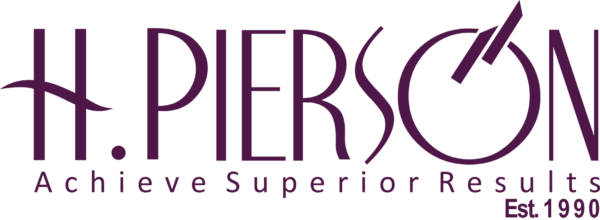Author: Clara Shih
In sociology, the “proximity principle” describes the tendency for people to form interpersonal relationships with those who are nearby. We often become friends with people we encounter regularly, energizing and bringing joy to each other and sharing a smile, an inside joke, or drinks after work.
Then Covid happened. These days, proximity is harder to come by than ever. Even employees who do go into the office may find it empty or populated by coworkers they barely know due to hoteling or hot-desk arrangements. As evidenced by employee engagement surveys, burnout, and attrition across industries, employees’ social and emotional needs are no longer being met. People feel isolated and fatigued working from home, yet most (81%, according to a Harvard Business School survey) don’t want to give up the flexibility of not having to come in every day.
In this new reality, how can leaders fill their employees’ cup? How do we provide autonomy and flexibility while fostering togetherness? How can we balance social interaction with efficiency, since no one likes long meetings? We need something to replace the daily social dopamine hit we used to get from interacting with coworkers in the office — but as we’ve experienced over the last two years, more emails and Zoom happy hours aren’t going to do the trick. So, what will?
The Growing Importance of One-on-One Interactions
Employee experience can be viewed as the combination of an “air game” (of one-to-many interactions) and “ground game” (of one-to-one and one-to-few interactions). Leadership teams set the strategy and provide air cover with corporate brand, culture, values, and policies such as compensation philosophy, parental leave, return-to-office mandates, and more. The ground game is what employees experience day-to-day with their managers, peers, and direct reports. The ground game involves managers going out in the field, walking the talk, meeting with people, and confronting real problems on the ground. Contrast that with air-game tactics like company-wide email blasts.
While companies need to have both an air game and ground game, it’s very hard, if not impossible, for a corporate leadership team to facilitate deep connection from the top down. In today’s virtual and hybrid work reality, employee engagement and human connection are a person-to-person ground game. To illustrate the point, imagine an electrifying in-person company all-hands, or the last live concert you went to. Now try to imagine watching the same all-hands or concert on your computer. Even if you’re lucky enough to not have distractions or disciplined enough to not be multitasking, the online experience is nowhere close. In a remote work environment, the ground game becomes more important than ever in driving employee experience, engagement, and loyalty.
How Managers Can Keep Teams Engaged in a Hybrid Environment
Once managers have the support they need, they can take steps to foster emotional connection, team bonding, and fun to compensate for the loss of proximity in the office. Here are a few:
- Have shared commitment and mutual expectations.
In the highest-trust relationships and highest-performing teams, each person commits to what can be expected of them so that the other can support, amplify, and help hold them accountable. In a remote setup, this extends beyond metrics like OKRs to include explicitly where, when, and how individuals prefer to work. Earlier this year, every team across Salesforce Service Cloud created a working agreement to document each team member’s needs and preferences. Often, an individual may belong to multiple teams: a team of peers (their manager plus their manager’s direct reports), their team of direct reports (if they’re a manager), and perhaps a scrum team. A working agreement should be created for each and may differ — for example, a scrum team needs to meet more often than a team of managers each running separate projects.
- Check in Often.
The tidbits of life news and body language we’re used to picking up from physical proximity are now gone or drastically diminished, so managers need to be more deliberate about creating space for team members to share — perhaps dedicating part of staff meetings to checking in on life updates or having a Slack prompt inviting everyone to share a photo from their summer. One of the Service Cloud leadership team’s highest-engagement (and most fun) Slack threads last year was everyone sharing a photo from Halloween.Because so much meaning can get lost or easily misinterpreted in text or email, I’m also a big believer in picking up the phone. I make it a point to call or text each person on my direct team (or vice-versa) at least once every few days, even if it’s just to say hi and let them know I’m thinking about them. Bring the team together to decide what kinds of updates, requests, and sharing should happen over email or Slack versus in real time over the phone or on video.
- Meet in person regularly.
Always have the next in-person meeting planned so the team has something to look forward to. Save contentious debates and collaboration-heavy work for those meetings. Spend extra time planning offsites, which are higher-ROI than ever, as they now need to generate enough team social capital to last between in-person meetings. I’ve found that first-time managers often need extra coaching and support to plan and execute their first offsite. Leaders should invest the time in sharing best practices as well as providing input, feedback, and encouragement.
- Show appreciation frequently in large and small ways.
Without the smiles, nods, and other nonverbal cues we used to give our coworkers in the office on a daily basis, we now have to be more deliberate about giving praise. This was a lesson I learned when starting a new job during the pandemic in late 2020. Due to stringent Covid policies at the time, I didn’t meet any of my coworkers in person for over six months. At one point, one of the highest-performing VPs in my organization asked me during a one-on-one whether I thought he was doing a good job. He was (and is) doing an incredible job, and I told him so, but I was taken aback by the question. I realized then how little he must have felt he knew me and what I think, especially in contrast to if we’d been in the office together day-in and day-out. Thanks to this experience, I try to be much more deliberate now about giving out recognition frequently, celebrating the small wins, and encouraging all the managers across my organization to do the same.
- Find a way to be together while apart.
Shared context bonds people together, and Covid has forced us to take a fresh and creative approach to team building. One of the most enjoyable evenings I had during the pandemic was a virtual Italian dinner with my team and our cross-functional partners. Though the 12 of us live in seven different places, we all enjoyed the same bottle of wine (shipped to each person ahead of time) and menu (from a local Italian restaurant in each person’s city). It was almost as good as being together in person and something we can do much more frequently than flying everyone to the same location. Another memorable moment was celebrating the holidays together last December with a beautiful virtual musical performance by one of our team members.
Not only are new methods required to address employees’ social and emotional needs, who carries out these methods is shifting from traditional corporate structures (air game) to the line managers running important ground plays. Providing employees with space, flexibility, and psychological safety isn’t enough — companies need to go beyond these table stakes to offer today’s remote and hybrid workers experiences that address their human need for the authentic connection, team bonding, and fun that used to come with in-person proximity at the office.
Recent Posts

What Nigeria Can Learn from Southeast Asia’s $325B Digital Payments Boom
If you want to see the future of digital payments, look east. By 2028, Southeast Asia’s (SEA) ecommerce market is projected to hit $325 billion-more

The Tragedy of Digital Transformation: 10 Principles to Avoid Another Digital Disaster in the AI Era
Billions have been lost on digital transformation initiatives that promised the future but delivered disappointment. New software was deployed over outdated processes. AI pilots with

Digitising Strategy Execution: Optimising Results and Impact
Many strategies fail — not because they are flawed, but because they are not executed. Across boardrooms and leadership teams, there is often a disconnect


